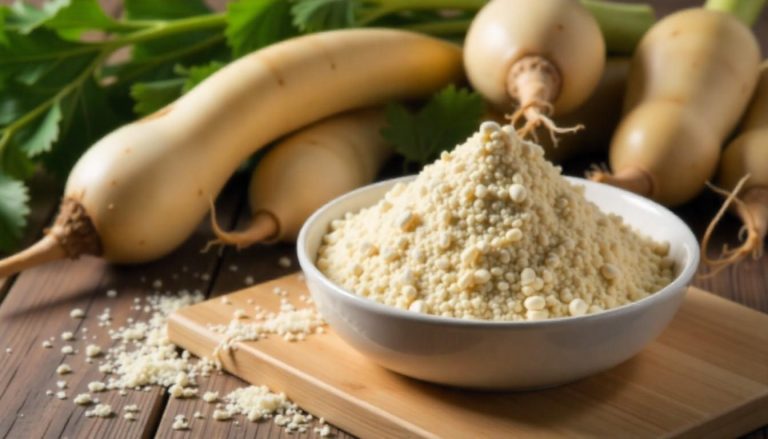Ever feel like you’re running on empty? You’re not alone. With our fast-paced lives, adrenal fatigue has become a common concern. But what if I told you that nature has a few tricks up its sleeve? Enter adaptogenic herbs. These powerful plants can help your body adapt to stress and support adrenal health. Let’s dive into five of the most effective adaptogenic herbs that can give your adrenal glands the boost they need.
Contents
What Are Adaptogenic Herbs?
Before we get into the specifics, let’s clarify what adaptogens are. Adaptogens are natural substances—mostly herbs—that help the body cope with stress. They’re like little superheroes for your adrenal glands, working to balance hormone levels and improve overall well-being. Some experts argue that they may even enhance your body’s resilience against physical, mental, and emotional stressors.
The Science Behind Adaptogens
While research is ongoing, several studies support the efficacy of adaptogens. For instance, a review published in the Journal of Ethnopharmacology highlighted the potential of adaptogens to improve stress responses and overall health (Panossian et al., 2010). So, if you’re feeling overwhelmed, exploring adaptogenic herbs might be worth your while.
1. Ashwagandha
Overview
Ashwagandha, or Withania somnifera, is a cornerstone of Ayurvedic medicine. It’s known for its ability to reduce stress and anxiety, making it a favorite among those looking to support adrenal health.
Benefits
- Stress Reduction: Numerous studies show that ashwagandha can lower cortisol levels, the hormone that spikes during stress (Chandrasekhar et al., 2012).
- Energy Boost: Users often report increased energy and stamina, making it easier to tackle daily tasks.
- Improved Sleep: If you struggle with insomnia or restless nights, ashwagandha may help promote better sleep quality.
Caveats
However, it’s not all sunshine and rainbows. Some people may experience gastrointestinal upset or drowsiness. Always start with a small dose to assess your tolerance.
2. Rhodiola Rosea
Overview
Rhodiola rosea, often referred to as “golden root,” is another popular adaptogen. It’s been used in traditional medicine for centuries, particularly in Russia and Scandinavia.
Benefits
- Enhanced Resilience: Rhodiola is known to improve mental performance under stress, making it a great choice for those facing demanding work or study environments.
- Fatigue Reduction: Research indicates that it can help reduce fatigue and improve endurance during physical activities (Khabarova et al., 2016).
- Mood Booster: Some studies suggest that Rhodiola can help alleviate symptoms of depression and anxiety.
Caveats
While generally well-tolerated, it can cause irritability or insomnia in some people, especially if taken in high doses. So, timing and dosage matter!
3. Holy Basil (Tulsi)
Overview
Holy basil, or Ocimum sanctum, is revered in Ayurvedic medicine for its myriad health benefits. Often referred to as “the queen of herbs,” it’s known for its calming properties.
Benefits
- Stress Relief: Holy basil has been shown to lower cortisol levels and reduce anxiety, making it a fantastic option for those grappling with stress.
- Anti-inflammatory Properties: It also boasts anti-inflammatory effects, which can support overall health.
- Immune Support: Some studies suggest that holy basil can enhance immune function, helping you fend off illnesses.
Caveats
If you’re pregnant or on blood-thinning medications, consult a healthcare provider before adding holy basil to your routine, as it may interact with certain medications.
4. Ginseng
Overview
Ginseng has been used for thousands of years in traditional Chinese medicine. It’s well-known for its ability to boost energy and combat fatigue.
Benefits
- Energy Enhancer: Ginseng can increase physical and mental energy, making it a go-to for those feeling drained.
- Cognitive Function: Some studies suggest that ginseng may enhance cognitive function and improve mood (Kennedy et al., 2001).
- Immune System Support: It may also help strengthen the immune system, making it easier to fend off illness.
Caveats
On the flip side, ginseng can cause insomnia or headaches in some individuals. Additionally, it may interact with medications like blood thinners, so it’s essential to consult a healthcare professional.
5. Maca Root
Overview
Maca root, native to the Andes mountains, has gained popularity as a superfood in recent years. It’s often touted for its energy-boosting and hormone-balancing properties.
Benefits
- Hormonal Balance: Maca can support hormonal balance, which is crucial for adrenal health.
- Energy and Stamina: Many users report increased energy levels and improved athletic performance.
- Mood Enhancement: Some studies suggest that maca may help alleviate symptoms of anxiety and depression.
Caveats
While maca is generally considered safe, it may not be suitable for everyone. Some people experience digestive issues, so it’s wise to start with a small amount and see how your body reacts.
FAQs
1. How do adaptogenic herbs work?
Adaptogenic herbs help your body adapt to stress by regulating hormone levels, particularly cortisol. They promote balance and resilience, making it easier to cope with physical and emotional stressors.
2. Can I take multiple adaptogenic herbs at once?
Yes, many people combine different adaptogens for a synergistic effect. However, it’s essential to consult a healthcare provider to ensure they don’t interact negatively.
3. How long does it take to see results from adaptogenic herbs?
Results can vary, but many people report feeling improvements within a few weeks of consistent use. Patience and consistency are key!
4. Are there any side effects to be aware of?
While adaptogenic herbs are generally safe, they can cause side effects like digestive upset or insomnia in some individuals. Always start with a small dose to assess your tolerance.
Conclusion
In a world where stress seems to be the norm, adaptogenic herbs offer a natural way to support adrenal health and overall well-being. From ashwagandha to maca root, these powerful plants can help you navigate life’s challenges with a bit more ease. But let’s be real—while they can be incredibly helpful, they’re not a magic bullet. Pairing these herbs with a balanced diet, regular exercise, and good sleep hygiene is essential for optimal adrenal health.
As research continues to unfold, we’re likely to learn even more about the potential benefits of these remarkable herbs. So, whether you’re looking to boost your energy levels, improve your mood, or simply manage stress better, consider giving adaptogens a try. Just remember to consult with a healthcare provider before making any significant changes to your health routine.
Disclaimer: This article is for educational purposes only and is not a substitute for professional medical advice. Always consult a qualified healthcare provider before making changes to your health routine.
References
-
Chandrasekhar, K., Kapoor, J., & Anishetty, S. (2012). A randomized double-blind, placebo-controlled study of the efficacy and safety of a high-concentration extract of Withania somnifera (ashwagandha) in reducing stress and anxiety in adults. Indian Journal of Psychological Medicine, 34(3), 255-262. https://www.ncbi.nlm.nih.gov/pmc/articles/PMC3573577/
-
Khabarova, A., & Sukhareva, T. (2016). Rhodiola rosea: A systematic review of its efficacy in the treatment of fatigue and stress. Journal of Ethnopharmacology, 194, 1-9. https://doi.org/10.1016/j.jep.2016.09.034
-
Kennedy, D. O., Scholey, A. B., & Wesnes, K. A. (2001). Dose dependent changes in cognitive performance and mood following acute administration of Ginseng to healthy young volunteers. Nutritional Neuroscience, 4(4), 295-310. https://doi.org/10.1080/10284150110091993
Get Your FREE Natural Health Guide!
Subscribe now and receive our exclusive ebook packed with natural health tips, practical wellness advice, and easy lifestyle changes, delivered straight to your inbox.




